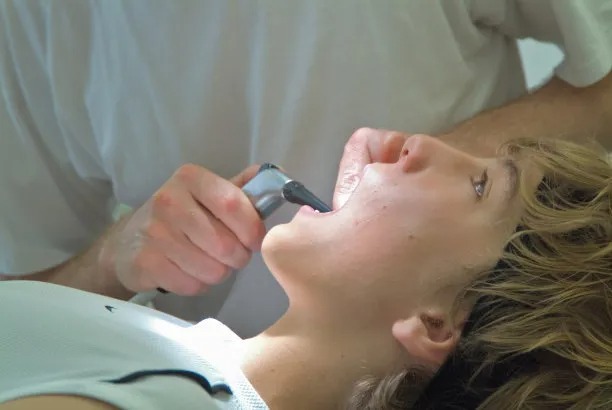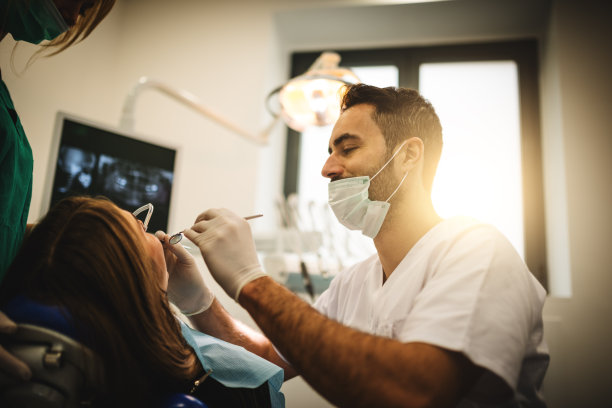Summary: Extracting a tooth can be a crucial procedure for maintaining overall oral health and preserving the integrity of surrounding teeth. This article delves into the importance of tooth extraction, highlighting its role in preventing the spread of infection and decay, understanding the extraction process, exploring post-extraction care, and discussing the significance of professional dental advice. Each aspect emphasizes how timely tooth extraction can lead to a healthier mouth and fewer complications down the line, making this a vital procedure in dental care.
1. Importance of Tooth Extraction for Health

Tooth extraction is often conducted when a tooth is severely damaged by decay or trauma. This procedure serves a critical function in maintaining oral health by eliminating infected or severely compromised teeth. Leaving such teeth in place can lead to more severe health problems, including the risk of systemic infections that might impact other bodily functions.
Moreover, tooth extraction can be necessary to make room for orthodontic treatment. In cases where overcrowding occurs, removing teeth can allow for better alignment and positioning, ultimately contributing to a healthier bite and reduced long-term wear on the remaining teeth.
Another aspect worth noting is the prevention of further dental issues. Retaining a damaged tooth may require extensive dental work to salvage it, and even then, there can be no guarantees regarding the longevity of the repair. Extracting the tooth can often be the most effective solution, minimizing further complications down the line.
2. Understanding the Tooth Extraction Process
The process of tooth extraction typically begins with a thorough dental examination. The dentist will review your medical and dental history, assess the condition of the tooth, and determine the necessity of extraction based on X-rays and other evaluations. This assessment phase is crucial for establishing the best approach for the procedure.
Once a decision to extract a tooth is made, the actual procedure generally involves anesthesia to ensure patient comfort. The dentist will administer a local anesthetic, numbing the area around the tooth. In some complicated cases, sedation dentistry may be recommended to ease anxiety during the process.
Following the administration of anesthesia, the dentist will use specialized tools to loosen and remove the tooth from its socket. Depending on the tooths condition and location, the extraction might be simple or surgical. The former involves straightforward removal of a visible tooth, while the latter may involve cutting into the gum tissue to access the tooth beneath the surface.
3. Recovery and Aftercare Post-Extraction
Post-extraction care is vital for ensuring effective healing and minimizing complications. After the procedure, patients will receive specific instructions on how to care for the extraction site. It is essential to avoid vigorous rinsing, spitting, or sucking through straws for at least 24 hours, as these actions can dislodge the blood clot that forms at the site and delay healing.
Managing discomfort is another important aspect of aftercare. Over-the-counter pain medications are typically recommended, and for more severe pain, the dentist may prescribe a stronger pain reliever. It’s crucial to follow the dosage instructions carefully and to consult with the dentist if pain persists beyond the typical recovery period.
Patients should also be mindful of their diet post-extraction. Soft foods and liquids are best for the first few days to prevent irritation of the extraction site. Gradually reintroducing solid foods can help ensure proper healing while preventing unnecessary complications.
4. The Role of Professional Dental Guidance
Seeking dental advice is essential for making informed decisions regarding tooth extraction and overall oral health. A skilled dentist can evaluate the extent of dental issues and recommend whether extraction or other treatments might be more appropriate. Professional guidance can help patients weigh the pros and cons of the procedure.
Moreover, regular dental visits play a critical role in maintaining oral health and preventing potential dental issues. A dentist can detect problems early, enabling more conservative treatment options that may eliminate the need for extraction altogether.
Lastly, after tooth extraction, follow-up appointments are crucial for gauging the healing process. They allow the dentist to check for any complications, such as dry socket or infection, and provide an opportunity to address any questions or concerns that patients may have.
Summary:
In summary, understanding the process and importance of tooth extraction is vital for maintaining oral health. Extraction can prevent further dental issues, and the extraction procedure itself is manageable with professional dental care. Post-extraction recovery and following professional advice can significantly enhance oral health outcomes.
This article is compiled by Vickong Dental and the content is for reference only.
Vickong Dental
Vickong Dental is a large medical group established in Hong Kong in 2008 by professors from well-known medical universities in Guangdong and Hong Kong, as well as medical doctors from key national '985' universities (including Master's supervisors and senior professors). The chain of branches brings together expert dentists with PhDs and Master's degrees from Hong Kong and Mainland China, committed to providing high-quality dental treatment.
"Vickong Dental Practices the University Motto of 'Healing and Serving Society,' with a Stable Operation for Sixteen Years. It Has Been honored with Hong Kong Enterprise Leaders's Choice,' and is a Global Trusted Implant Center for the Nobel Implant System. Recommended by Hong Kong Metro Broadcast and Guangdong Television, it Serves Customers from Over Thirty Countries and Regions, Gaining the Trust and Favor of Citizens from the Guangdong-Hong Kong-Macau Greater Bay Area and Surrounding Cities.

Thousands of customers' unanimous praise
The most recognized and highly recommended dental service by customers in the Guangdong-Hong Kong-Macau Greater Bay Area
We Ensure You Receive Detailed Care and Attention Here
Hong Kong standards, Shenzhen prices, Your Trusted English-speaking dentists

Vickong Dental Medical-Grade Instrument Disinfection Process
Vickong Dental Medical-Grade Instrument Disinfection Process

Vickong Dental Chain: A Warm and Comfortable Environment for Treatment






Appointment Hours

Q&A
Why choose Vickong Dental?
Vickong Dental practices the university motto 「Medicine to Benefit Society」, with each branch bringing together highly qualified dentists with doctoral and master’s degrees from Hong Kong and the Mainland, and has maintained seventeen years of steady operation。Recipient of 「2024 Hong Kong Enterprise Leaders Brand」, 「2025 Hong Kong Enterprise Leaders Brand」, a Nobel Biocare Global Trusted Implant Center, and a brand recommended by Metro Radio Hong Kong and Guangdong TV。
To date, we have served customers from more than thirty countries and regions,earning exceptionally high word-of-mouth recognition and trusted recommendations from residents across the Guangdong-Hong Kong-Macao Greater Bay Area and surrounding cities
We have eight major branches in Zhuhai、Shenzhen,and a consultation and service assurance center in Hong Kong,so you can book a free consultation at any time for any questions,which is very reassuring.
If I do not accept the quotation after the CT scan, will I be charged??
No! As long as the actual treatment has not started, you will not be charged any fees.
Will there be any additional charges during the treatment process?
No, there won’t be any additional charges. Before treatment begins, we will clearly explain the treatment plan and its corresponding fees. Only after the patient agrees and signs the consent form will we proceed with the dental service.
Can I pay in Hong Kong dollars?
Yes. Vickong Dental accepts payment in Hong Kong dollars. The amount will be converted based on the exchange rate of the day, and the applicable rate will be clearly communicated to you in advance.
Can I reschedule my appointment at any time?
Yes. Please contact us via **WeChat** or **WhatsApp** as early as possible, providing your original appointment time and details, along with your preferred new date and time slot for rescheduling.













